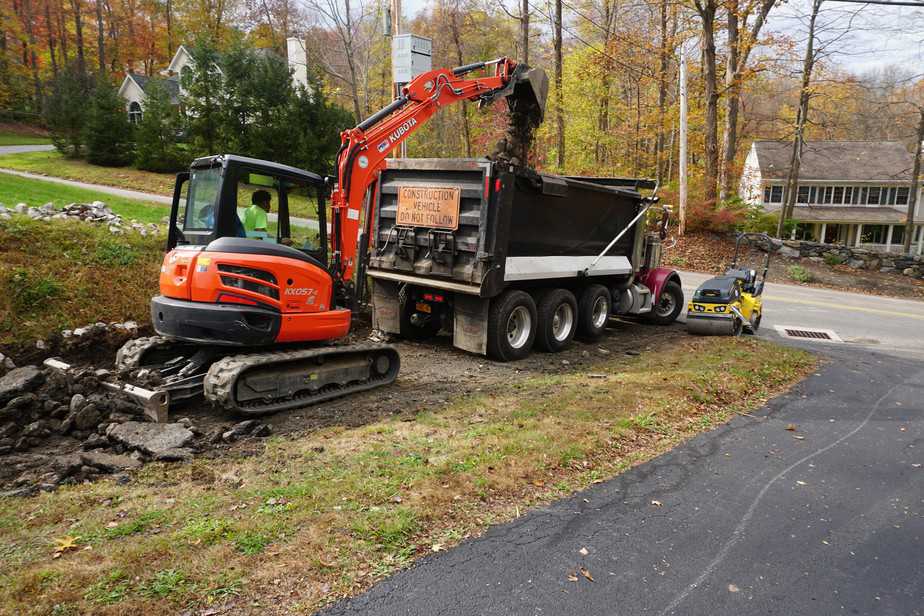Residential Excavating Ohio - Specialized Excavation for Ohio Residences
Residential Excavating Ohio - Specialized Excavation for Ohio Residences
Blog Article
Comprehensive Excavation Methods: Grasping the Basics for Success
In the world of construction and civil design, the importance of reliable excavation methods can not be overstated. The mindful preparation, exact execution, and thorough interest to detail called for in excavation jobs demand a thorough technique that includes different basic aspects. From first dirt analysis to the application of safety and security steps and normal development monitoring, mastering these core aspects is crucial for achieving success in any kind of excavation undertaking. The real mastery lies not just in understanding these principles yet in flawlessly incorporating them to browse the complexities of excavation jobs with skill.
Recognizing Excavation Job Planning

Effective excavation jobs are improved the structure of careful and extensive planning. The first phase of any excavation project is the preparation stage, where essential decisions are made that can significantly impact the result of the task. During this phase, it is necessary to collect all relevant info regarding the site, consisting of topographical surveys, soil composition, and any type of prospective dangers that might exist. Recognizing the task extent, budget, and timeline constraints is vital for developing a thorough excavation strategy that guarantees the task's success.
One trick element of excavation task preparation is the development of a thorough timeline that details the series of target dates, tasks, and landmarks. This timeline functions as a roadmap for the task team, permitting them to track development and make needed changes to make certain the task remains on schedule. Furthermore, a well-defined spending plan that makes up all costs, including equipment leasing, labor costs, and materials, is important for preventing expense overruns and hold-ups. By thoroughly considering all these aspects during the planning stage, excavation projects can be performed successfully and efficiently, causing effective results.
Soil Analysis and Website Examination
Performing thorough dirt analysis and website assessment is a vital action in the prep work stage of any excavation job. Dirt analysis entails identifying the make-up, framework, and residential properties of the dirt at the excavation site. This details is crucial for understanding the dirt's bearing capacity, wetness web content, and potential for erosion, which are vital consider figuring out the excavation techniques and devices required for the task.
Website assessment goes past dirt evaluation and incorporates a broader evaluation of the overall site problems. This assessment includes identifying any kind of possible risks, such as below ground utilities, ecological issues, or unsteady terrain, that can influence the excavation process. By completely examining the website, task managers can establish efficient excavation approaches that prioritize security, efficiency, and environmental management.
Making use of innovative technologies like ground-penetrating radar, dirt sampling, and drone studies can boost the accuracy and effectiveness of dirt evaluation and website evaluation. Spending time and resources in these initial actions can eventually conserve time and avoid pricey delays or issues during the excavation process.
Equipment Selection and Usage
Efficient excavation projects count greatly on calculated tools option and application to make certain optimal efficiency and performance. Picking the appropriate devices for the work is vital in optimizing efficiency and decreasing downtime. Elements such as the type of soil, deepness of excavation, and task range play a considerable function in figuring out one of the most suitable devices for the task at hand.

In addition to choosing the appropriate tools, proper use is crucial to task success. Operators should be educated to handle the tools safely and efficiently - septic ohio. Routine upkeep checks and timely fixings assist avoid break downs and make certain consistent performance throughout the job
Security Measures and Laws Conformity
In the world of excavation tasks, prioritizing security actions and compliance with regulations is extremely important to making sure a secure and legally sound operational environment. Precaution include a range of methods, consisting of performing extensive website evaluations, executing appropriate signs and obstacles, and offering adequate safety training for all workers entailed in the excavation process. Adherence to policies, such as OSHA needs in the United States, makes sure that the excavation project fulfills the necessary standards to shield workers, bystanders, and the surrounding atmosphere.

Tracking Development and Adjusting Methods
Exactly how can forecast supervisors properly track the advancement of excavation projects and adapt their techniques accordingly to maximize results? Surveillance progress is vital for ensuring that excavation jobs stay on track and meet due dates. Job supervisors can use various tools and strategies to track progression, such as daily progression records, regular site examinations, and advanced monitoring innovations like drones and general practitioners tracking systems. By continuously monitoring the task's innovation, supervisors can recognize any possible delays or problems early on and take aggressive procedures to address them.

Conclusion
Finally, mastering the principles of comprehensive excavation techniques is vital for the success of any kind of task. By understanding task planning, analyzing dirt and site conditions, selecting ideal devices, conforming with safety and security laws, and keeping track of progress, task supervisors can guarantee a smooth and efficient excavation process. Carrying out these strategies will certainly lead to effective end results and decrease potential threats or troubles throughout the excavation job.
The initial phase of any type of excavation task is the preparation phase, where crucial decisions are made that can significantly affect the end result of the project. Comprehending the project range, budget, and timeline restrictions is critical for developing an extensive excavation plan that makes certain the job's success.
Exactly how can forecast supervisors successfully track the improvement of excavation projects and adjust their methods accordingly to optimize end results? By closely checking progression and being ready to adjust approaches, task managers can improve the total success of excavation jobs.
By recognizing job preparation, analyzing soil and site problems, picking appropriate tools, conforming with security laws, and checking progress, task supervisors can make certain a efficient and smooth excavation process.
Report this page